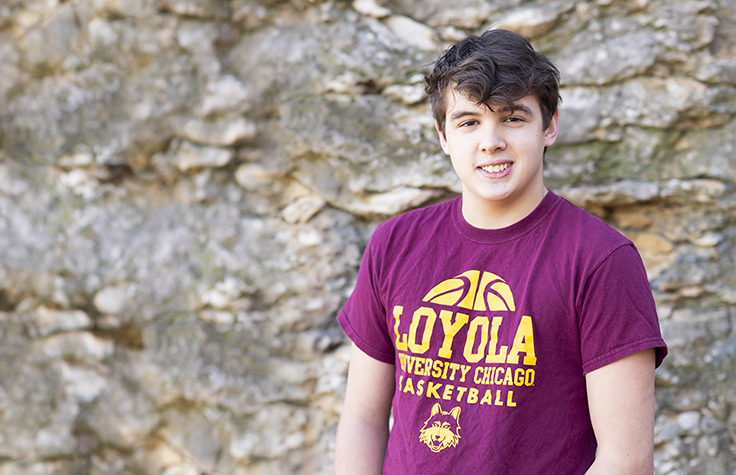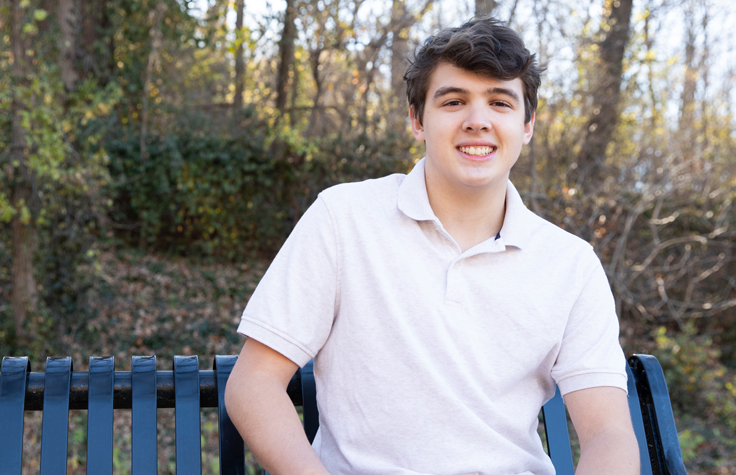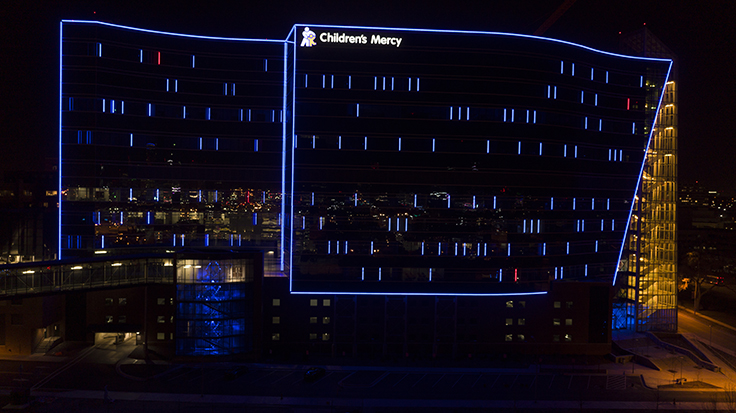
April 30, 2021
Like many teenagers his age, when Ben noticed that something was a little off - he grabbed his phone. For weeks, Ben was going to school, participating in wrestling, and doing what most teenagers do in their free time - hanging out with friends. One day, on the way home from practice, he noticed something was off. It had been hours since he was on the mat. Even after a shower and drive home, his heart was still pounding.
The signs became harder to ignore. Ben realized that his heart seemed to be speeding up, and nothing seemed to calm it down. He downloaded an app to see if he was imagining things and mentioned it to his mom. He learned that even when he felt relaxed, his heart rate was over 100 beats per minute.
That’s when Sarah’s motherly instinct kicked in. She began quietly going into Ben’s room in the morning to check his pulse before he woke up. The app was right - his heart rate was consistently above 100 beats per minute. It was time to investigate further. That's when Children’s Mercy entered the picture.

Children’s Mercy in Kansas City was founded in 1897. Founders Dr. Katharine Berry Richardson and Alice Berry Graham created the hospital with a mission to provide access to quality healthcare for all kids. Today, the hospital is deeply invested in using genomics for diagnosis and treatment in the clinic. It supports research and discovery aimed at finding cures and transforming care for all children, one child at a time.
In March 2021, Children’s Mercy officially opened the doors of its brand new Children’s Mercy Research Institute (CMRI) facility. Located next door to the downtown hospital, the CMRI is an eye-catching addition to the Kansas City skyline. Inside the building, they employ state of the art next-generation sequencing (NGS). Illumina’s NovaSeqTM 6000 and NextSeq™ 2000 instrumentation supports their efforts to solve unanswered questions for families with rare and undiagnosed diseases.
Dr. Tom Curran leads the charge at the new CMRI. Under his guidance, he’s tasked the institute with the goal of sequencing 100,000 genomes in the next seven years through a flagship project called Genomic Answers for Kids. By utilizing NGS, the CMRI brings hope to families who have undergone multitudes of tests without any progress. This starts with exome sequencing – a genomic technique that sequences all of the protein-coding regions of genes in a patient’s genome. From there, whole-genome sequencing can determine the order of all the nucleotides in a patient’s DNA to pinpoint variations that whole exome sequencing may have missed.
Researchers at the CMRI specialize in everything from childhood genetic diseases, to pediatric cancer and infectious disease. Their expertise, coupled with sequencing power of new technologies, gives the CMRI the ability to analyze potential deletions and structural variations that otherwise elude healthcare providers. Whole-genome sequencing now has the power to help doctors diagnose genetic diseases in days, helping parents and families avoid months or years of inconclusive tests and sleepless nights.
The more children we are able to sequence, the more we are able to understand about genetic variations. Our tools, and the power of NGS, allow us to help more people collectively.
Dr. Farrow has been at Children’s Mercy since 2012. When she started, there were only ten employees at the Genome Center and a single HiSeq™ sequencer in the lab. Since then, there has been a tremendous amount of growth, including being named one of TIME magazine's Top 10 Medical Breakthroughs of 2012. Sample volumes have increased exponentially and the ability to dive deeper into the genome to find novel genes is now a reality.
CMRI’s commitment is lighting up the promise of genomics in a very unique and literal way. Every night, the new building is illuminated with the DNA sequences of four exceptional children. These children were each patients at the hospital who received a diagnosis or treatment after being sequenced. The lights displayed on the windows are color coded to show their sequences and the variants that contributed to their conditions.
One of these sequences belongs to Ben.

After Ben and his mother visited Children’s Mercy to figure out why Ben’s heartbeat wouldn’t slow down, they ran some blood tests. Through these blood tests, they discovered that Ben had a change in his genetic blueprint that caused him to break down some drugs slower than others. Because of this unique variation, the medicine he was prescribed for ADHD was building up in his body and elevating his heart rate. All of a sudden - Ben had an answer. Through genetic assessment and precision medicine, change management was possible. His medical team lowered his dosage and relieved his symptoms.
Ben’s story is unique, not rare. Thousands of families go through similar circumstances, but few are able to find a diagnosis as quickly as Ben. With genetic sequencing, and the research being done at the CMRI, there is hope that more families can find the answers they’re looking for.
The CMRI isn’t only focused on current patients. They have a forward-looking vision about how they can invest in future doctors, scientists and trailblazers in the genomic space. By reaching today’s students, they support the innovators and scientists of tomorrow. This April, CMRI launched the Illumina Corporate Foundation Decoding Challenge for students around the country. The Decoding Challenge inspires students to connect with the patients that are reflected on the building by challenging them to determine the variants in the lights and identify how they might help change treatment for patients.
This learning opportunity ties together genomic research, education, and community impact.
The diagnostic journey of rare and undiagnosed disease is often a long, difficult path. Through the research and community outreach of institutes like Children’s Mercy - the future is bright.


